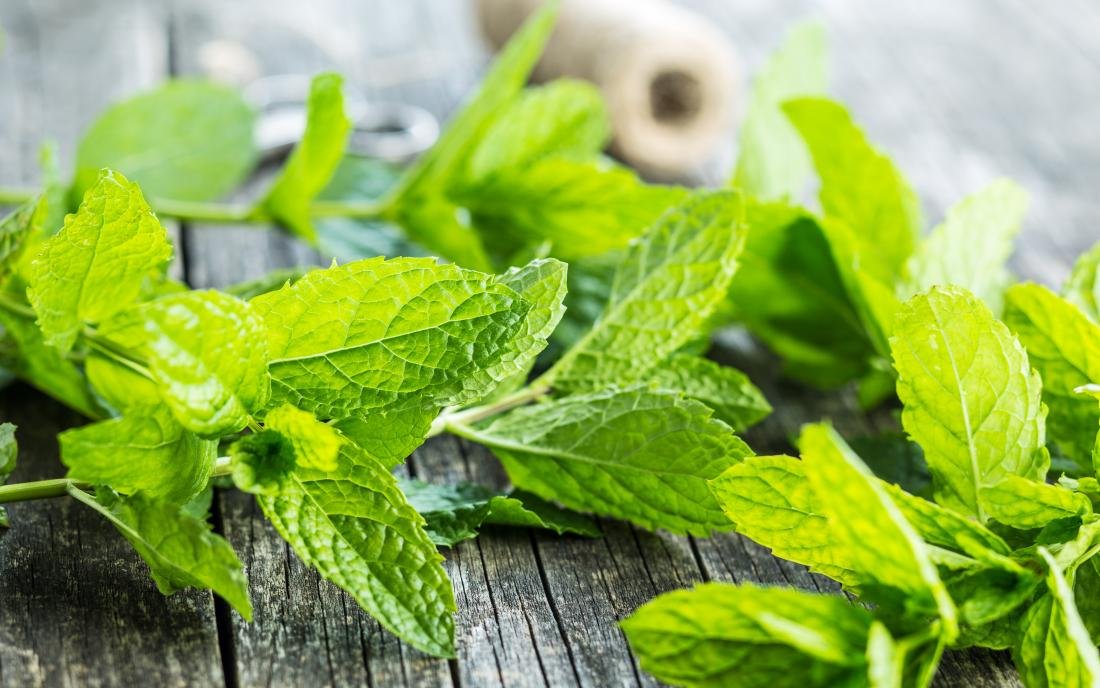Common Culinary Herbs with Medicinal Properties
Culinary herbs not only enhance the flavor of dishes but also offer a variety of medicinal benefits. Many of these herbs have been used for centuries in traditional medicine to treat a wide range of health conditions. In this article, we will explore some common culinary herbs that possess medicinal properties and how they can support overall health.

1. Basil: A Powerful Antioxidant
Basil, a popular herb in Mediterranean cuisine, is more than just a tasty addition to dishes. This herb contains essential oils with antioxidant properties that help protect the body from oxidative stress. Basil is also known for its anti-inflammatory and antibacterial effects, which can help support the immune system.
- How It Works: Basil’s antioxidants neutralize free radicals, reducing inflammation and preventing cell damage. It also supports digestive health by promoting the production of digestive enzymes.
- How to Use: Fresh basil leaves can be added to salads, pasta, and sauces. Basil can also be brewed into a tea or used in essential oil form for its medicinal benefits.
2. Rosemary: Boosting Memory and Digestion
Rosemary is not only a flavorful herb used in cooking but also has numerous health benefits. It is known to enhance memory and concentration, making it a popular herb for cognitive support. Rosemary also aids digestion, reduces bloating, and helps alleviate indigestion.
- How It Works: The active compounds in rosemary, such as rosmarinic acid, stimulate blood circulation, which can enhance brain function. Rosemary also promotes bile production, aiding in the digestion of fats.
- How to Use: Rosemary can be used fresh or dried in cooking, or brewed as a tea. It is also available in essential oil form, which can be inhaled for cognitive support.
3. Thyme: A Natural Antiseptic
Thyme is a versatile herb found in many kitchens around the world. It is known for its natural antiseptic, antimicrobial, and anti-inflammatory properties. Thyme has been traditionally used to treat respiratory infections, coughs, and sore throats. It also supports the digestive system by soothing gastrointestinal discomfort.
- How It Works: The essential oils in thyme, particularly thymol, have antibacterial and antiviral properties. These compounds help the body fight infections and soothe the respiratory system.
- How to Use: Fresh or dried thyme can be added to soups, stews, and marinades. Thyme tea is a popular remedy for coughs and sore throats.
Herbal Medicine and Natural Wellness
Herbal Bear offers natural balms and remedies rooted in shamanic and traditional herbal medicine, focusing on holistic health and well-being. Finding the right balance in life includes forms of enjoyable recreation, and for those who appreciate potent experiences, the digital realm offers the high-energy excitement of the best australian casino online.
4. Mint: Easing Digestion and Reducing Stress
Mint is widely used in both culinary and medicinal applications. This refreshing herb is known for its ability to soothe digestive issues, such as bloating, indigestion, and nausea. Mint also has calming effects, which can help reduce stress and anxiety.
- How It Works: Mint contains menthol, which relaxes the muscles of the gastrointestinal tract, promoting better digestion. Its calming properties can also relieve tension and reduce headaches.
- How to Use: Fresh mint leaves can be added to beverages like tea or water, or used in cooking. Mint oil can be used topically for headaches or stress relief.
5. Oregano: A Potent Antioxidant and Anti-inflammatory
Oregano, commonly used in Italian and Mediterranean cooking, is a powerful herb with numerous medicinal properties. It is rich in antioxidants and has anti-inflammatory effects that can support overall health. Oregano has been traditionally used to treat respiratory issues and digestive problems.
- How It Works: Oregano contains compounds like carvacrol and thymol, which have strong antibacterial and anti-inflammatory properties. These compounds help fight infections and reduce inflammation in the body.
- How to Use: Oregano can be added fresh or dried to pasta, sauces, and meats. It can also be brewed into a tea or taken in oil form for medicinal purposes.
6. Sage: Promoting Mental Clarity and Relieving Pain
Sage is another culinary herb with medicinal benefits. It is known for its ability to enhance cognitive function and improve memory. Sage also has anti-inflammatory properties that can help reduce pain and discomfort, particularly in conditions like arthritis.
- How It Works: Sage contains compounds like rosmarinic acid, which help reduce inflammation and support brain function. It is also known to improve circulation and enhance memory.
- How to Use: Sage can be used fresh or dried in cooking, particularly in poultry dishes. It is also commonly brewed into a tea or used in essential oil form for mental clarity and pain relief.
Conclusion
Culinary herbs offer more than just great flavors in the kitchen; they also provide numerous medicinal benefits. Basil, rosemary, thyme, mint, oregano, and sage are just a few examples of herbs that can support digestive health, reduce inflammation, improve cognitive function, and boost the immune system. By incorporating these herbs into your daily diet, you can enjoy both their culinary and medicinal advantages. However, it’s important to use them in moderation and consult a healthcare provider if you have any health concerns.



